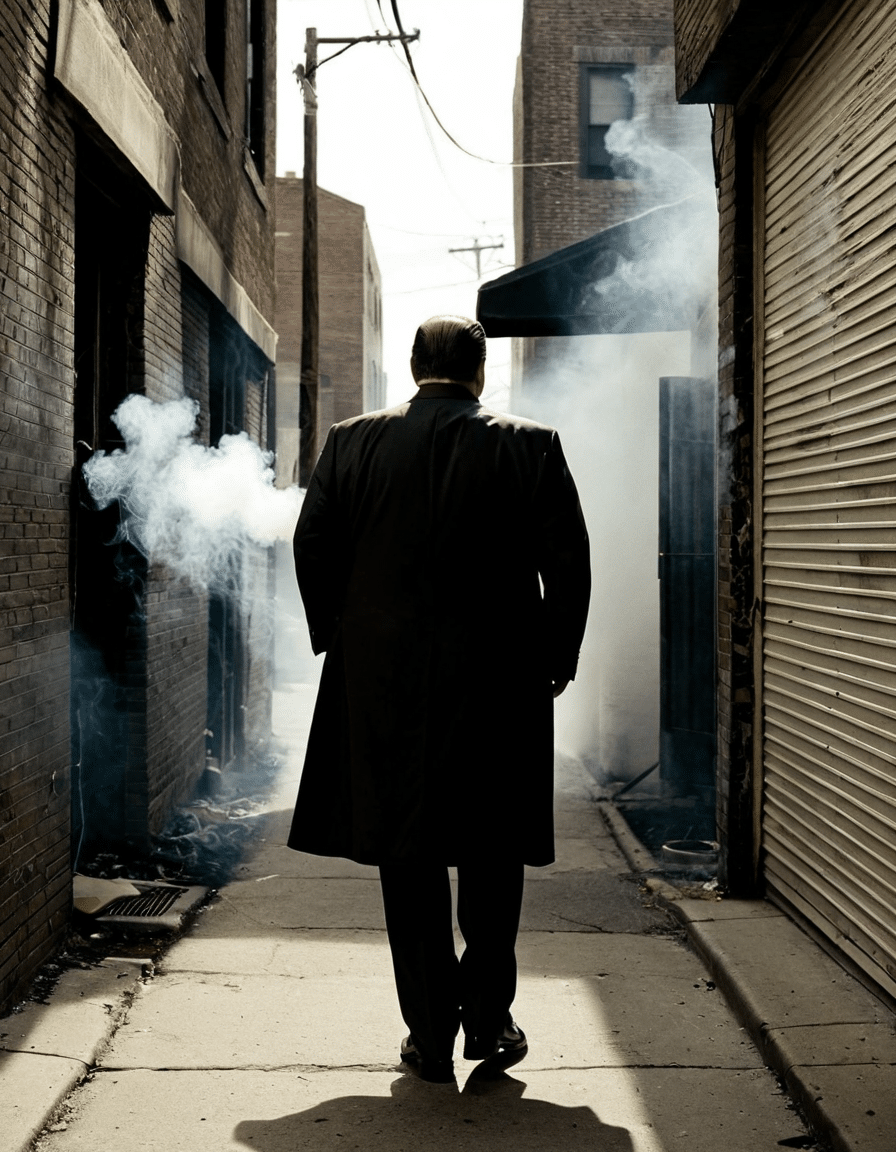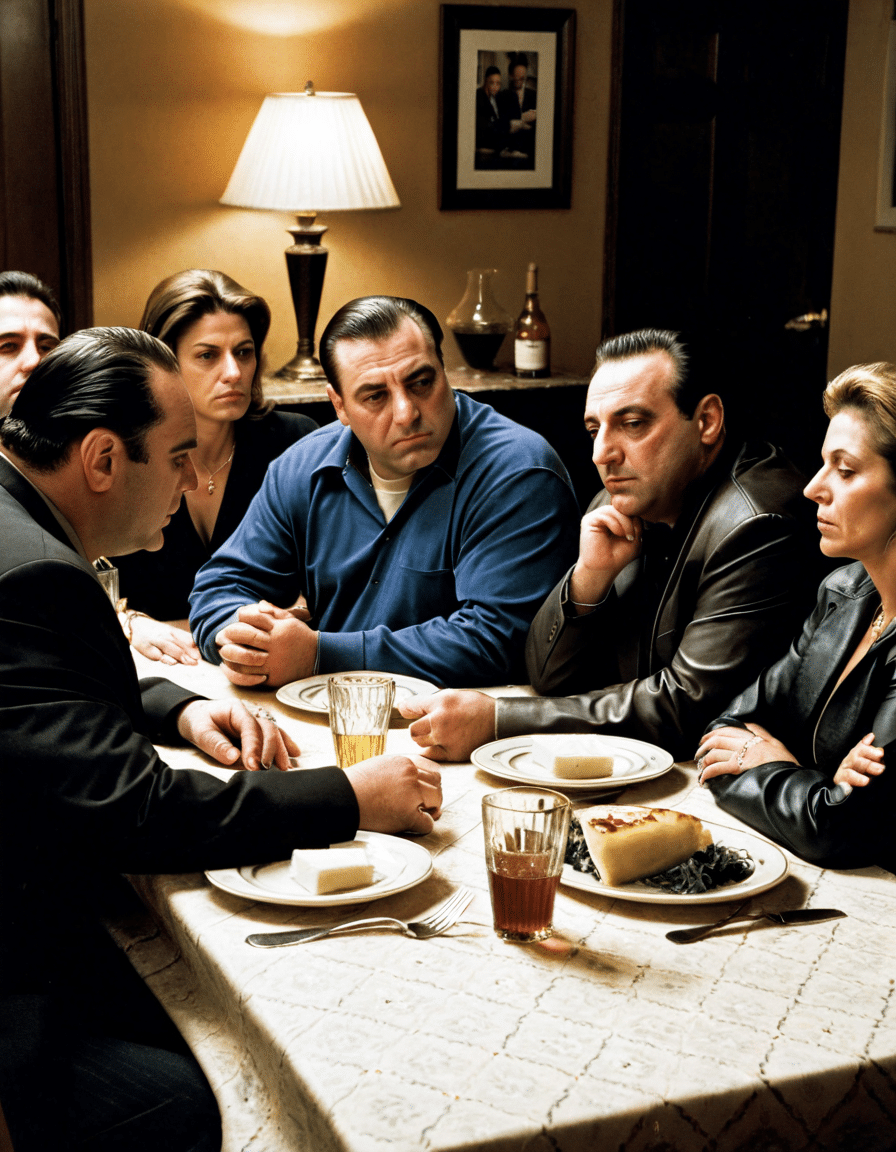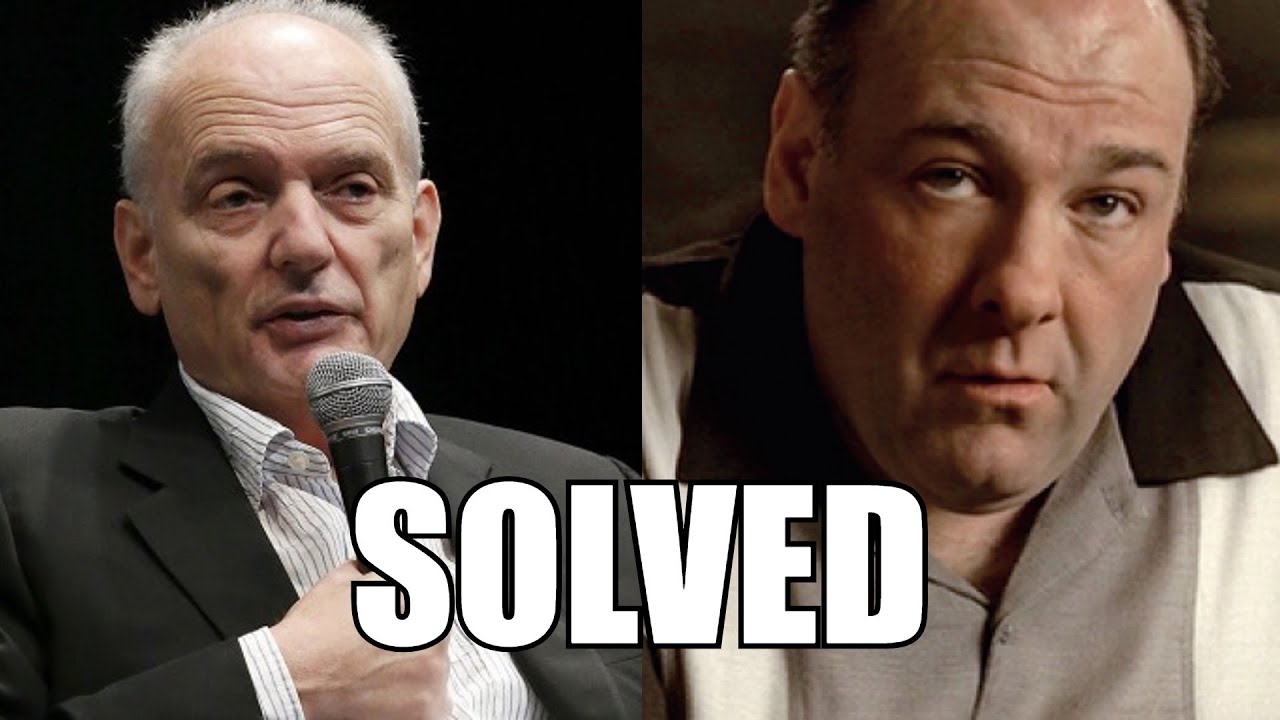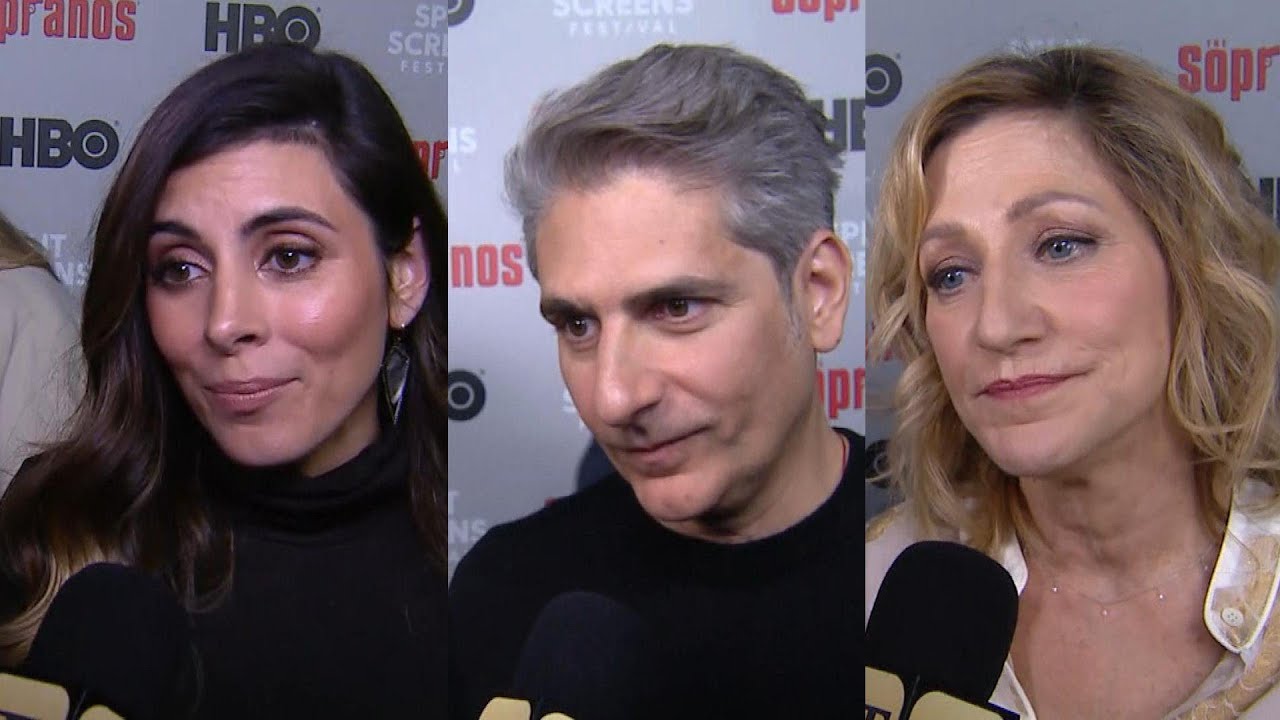
Sopranos Ending Leaves Fans Questioning Its True Meaning
1. The Sopranos Ending: A Fan’s Puzzle That Continues to Intrigue
When The Sopranos aired its controversial series finale in 2007, it left the audience buzzing with questions. To this day, the Sopranos ending remains a hot topic of discussion among fans and critics alike, and for good reason. HBO’s groundbreaking show has left an indelible mark on television storytelling, challenging what it means to close a narrative arc. The ambiguity surrounding Tony Soprano’s fate isn’t just a conversation starter; it’s a puzzle that continues to intrigue.
The series finale, “Made in America,” doesn’t tie up loose ends. Instead, it slammed the door on an era, throwing viewers headfirst into a dialogue about mortality and identity. With layers of irony and thick symbolism, the Sopranos ending becomes more than a conclusion; it’s an invitation to explore the complexities of life, loyalty, and family. Today, we’ll delve into the interpretations that keep fans debating and dissecting the series, examining what the finale reveals about Tony’s existence and American culture.
In this article, we’ll peel back the onion on the finale’s significance—its implications in popular culture, its rich symbolism, and why it sparked those endless late-night discussions. Let’s dive deeper into the heart of the Sopranos ending, a moment that, even now, signifies much more than just a black screen.

2. Top 5 Theories About the Sopranos Ending That Still Divide Fans
The moment the screen fades to black, fans are left in stunned silence. Many believe this sudden end signifies Tony’s death, and there’s plenty of evidence to back it up. Director David Chase has hinted at the realities of mob life—death is always looming. This theory resonates with those who see The Sopranos as a meditation on life’s fragility. For them, Tony’s fate is a grim, yet fitting closure.
Others argue that the Sopranos ending reflects Tony’s never-ending fight. Sitting in that diner, he’s constantly on edge, scoping out potential threats. In this view, the ordeal isn’t about dying but living in perpetual peril. The real nightmare lies in Tony’s reality, an unyielding cycle of danger and uncertainty. A clever social commentary, perhaps?
Some fans go a bit further, entertaining the notion of a multiverse. Under this theory, Tony exists in various timelines. Far from being just a simple story wrapped neatly in a bow, the diner scene becomes one of many possible outcomes. Would Meadow succeed? What would happen to AJ? This theory intertwines the fates of these characters with Tony’s, suggesting a web of stories untold.
The diner, a classic symbol of Americana, serves as a metaphor for Tony’s life filled with contradictions. Critics say that the Sopranos ending critiques American consumer culture while exploring themes of family and moral decay. Here, Tony tries to navigate the complicated dynamics of loyalty versus greed—what does it mean when your family ties you to a world of crime and consequence?
Finally, some interpret the finale as a poignant commentary from David Chase on artistic expression. By leaving the ending open, Chase encourages viewers to draw their own meanings from the narrative. In doing so, he creates a dialogue about life, art, and the choices we make. Understanding the Sopranos ending means grappling not just with the characters but with our perceptions of morality.
3. The Legacy of the Sopranos Ending in Popular Culture
The finale of The Sopranos wasn’t just a conclusion; it shaped the landscape of modern TV storytelling. It ignited discussions and set the stage for future shows like Breaking Bad and Mad Men, which have also relied on complex, layered endings to evoke interest and debate. The effects of the Sopranos ending reach beyond its runtime, solidifying its place in the annals of television history.
Show creators realized that ambiguity could provoke thought rather than frustrate audiences. This shift encouraged new generations of storytellers to embrace complex narratives, forging a path for shows that push boundaries. Among the creators, Chase’s ability to leave an audience guessing became a blueprint for future successful television series.
The conversations sparked by The Sopranos ending continue to resonate. Social media platforms are alive with debate, and fans relive the moment they first encountered that iconic blackout. The finale stands as a testament to how an ending can transform an entire series into an enduring cultural dialogue.

4. The Role of Symbolism in the Sopranos Ending
Symbolism in The Sopranos ending plays a vital role in its complexity. Each motif weaves a rich narrative tapestry, one that unfolds in multiple layers. The diner, as the location for one of the most iconic closing moments in television, stands as a crucible of human choice. It mirrors both ordinary life and the chaos Tony inhabits daily.
Additionally, the bell that jingles as characters enter and exit symbolizes the fickle nature of time and change. These sound cues serve to remind viewers of how quickly life can shift, catching Tony in a constant state of suspense. Life is a series of choices, each ringing like the bell, representing a choice made or unmade.
Underlying it all, Chase plays with themes of violence and family. By embedding these symbols within the Sopranos ending, he not only enriches Tony’s character arc but invites us to reflect on our own lives. Its relevance to themes like loyalty and self-interest will resonate with audiences for generations to come.
Reflecting on the Sopranos Ending Today: An Ongoing Conversation
As time passes, the Sopranos ending keeps inspiring fresh discussions, ensuring it remains a pivotal piece of television history. New fans are regularly drawn into Tony Soprano’s world, each generation finding meaning in the finale that’s uniquely their own. This ongoing relevance attests to the show’s exceptional writing and character exploration.
The finale not only invites personal interpretations but also raises questions about American culture, crime, and the ethics that come with it. By engaging fans from different eras, The Sopranos fosters a community willing to analyze themes of life and morality in ways unparalleled in television history.
In the end, the Sopranos ending stands as an eternal question. Whether it’s a glimpse into American life, a look at mob culture, or a challenge to engage with art, its true significance remains open to interpretation. Here’s to Tony Soprano—a character whose story will persist long after the screen faded to black, continually sparking conversations that many still find themselves drawn to.
Sopranos Ending: Trivia That Keeps Fans Guessing
The Final Shot of Tony Soprano
The infamous final scene of The Sopranos leaves viewers buzzing with unanswered questions. As the screen cuts to black, many were left pondering—did Tony make it out alive? Speaking of mysteries, did you know that the show’s creator, David Chase, once said he envisioned the ending as the ultimate cliffhanger? It’s a nod to the show’s start, where Tony was a mysterious figure living a dual life, much like how it leaves us questioning again and again. This reminds us of unexpected endings in other shows, such as Last Chance U, where the real-life situations are as shocking as any scripted drama!
Hidden Symbolism
The Sopranos ending also bursts with symbolism. The diner scene is filled with hints that fans have dissected for years. Each patron could represent a different piece of Tony’s life, and the use of music at that moment builds suspense. If you want to dive deeper into the intricacies of this series, think of how Merle Dandridges performance keeps you on your toes in any role she takes on. She’s not afraid of pushing the envelope, much like Chase with his polarizing choices. It’s fascinating how a simple scene can be loaded with meaning, similar to how an epoxy table can become a centerpiece in a home!
The Ongoing Debate
While some fans celebrate the ambiguity, others find it frustrating. Just like the fanfare around Ben Affleck For Batman, opinions are loud and varied—some love his portrayal, while others wish for something else altogether. Meanwhile, Jonah Patitzs contributions to pop culture show how different interpretations can still spark lively conversations. That’s the beauty of endings that leave everyone talking, from the emotional rollercoaster of Selena Gomez crying on social media to deep discussions about character arcs.
As we continue to discuss the Sopranos ending, its implications on storytelling are profound. It seems this show not only changed the game for TV but also planted seeds for future narratives, reminding us that some stories thrive on leaving their audience guessing, just as various seasons of Outer Banks are shot in stunning locations that have fans guessing where it all takes place. With its unforgettable end, The Sopranos will always be a timeless piece sparking fan theories and debates, fanning the flames of pop culture discussion.

What actually happened at the end of The Sopranos?
The end of The Sopranos left fans buzzing with confusion. As the screen cut to black mid-scene, it sparked theories galore about whether Tony was killed or merely continuing his life in a tense, uncertain world.
What happened to Meadow Soprano in the end?
Meadow Soprano ends up standing outside the diner, trying to park but ultimately missing the moment when the screen goes black. It’s implied she’s about to join her family, but the uncertainty hangs in the air.
Who betrayed Tony Soprano in the end?
Betrayal comes from within Tony’s own circle, as it’s hinted that Phil Leotardo, along with some of his crew, were plotting against him, leading to the tension-filled finale.
Why did The Sopranos end so abruptly?
The abrupt ending was partly a creative choice by David Chase, wanting to leave things open for interpretation and avoid giving fans a tidy conclusion that simplifies the complex narrative.
Why did The Sopranos end with a black screen?
The famous black screen symbolizes the suddenness of life and death, leaving fans to ponder Tony’s fate and the unpredictability of the mob life he led.
Who flipped at the end of The Sopranos?
It appears that the character of Paulie Walnuts flipped, as viewers learn about the ways loyalty can shift in the criminal underworld throughout the show.
Was Tony shot at the end of Sopranos?
Whether Tony was shot at the end is left ambiguous; the sudden cut to black suggests a shift in the scene, leading viewers to speculate but never confirm what really happened.
Did Meadow gain weight in season 2?
Some fans noticed that Meadow gained weight in season 2, which was evident in various scenes as she navigated her college life and personal struggles.
What happened to AJ Soprano in the end?
AJ Soprano’s journey wraps up with him finding some peace and direction in his life, eventually stepping away from the chaos that had surrounded him for so long.
Who ordered the hit that killed Tony Soprano?
The order to hit Tony remains vague, as no clear figure takes the blame, but the setup points to Phil Leotardo wanting revenge after some prior conflicts.
Did Carmela know Tony was a killer?
Carmela does seem aware of Tony’s darker side, as she struggles with the ethics of his actions while still enjoying the lifestyle he’s provided.
Who is the father of Paulie Walnuts?
Paulie Walnuts’ father is never explicitly named in the show, but it’s suggested that his family background is intertwined with the mob life, adding depth to his character.
Why did people hate The Sopranos ending?
Fans had mixed feelings about the ending, with many feeling it was too open-ended and unsatisfying, leading to heated debates about what it all meant.
What was the controversial Sopranos ending?
The controversial ending is defined by that sudden blackout, prompting fans to wonder if Tony was killed or if life continued as usual, adding layers of mystery.
What happened to Silvio in The Sopranos?
Silvio ends up in a coma after being shot, with his fate left uncertain, much like many characters in the series.
What happened to the actress who played Meadow on Sopranos?
The actress who played Meadow, Jamie-Lynn Sigler, continued to act in various roles after The Sopranos, and she’s also been open about her struggles with health issues.
Why did Meadow run away at the end of Sopranos season 3?
Meadow ran away at the end of season 3 as a dramatic expression of her frustration with her family’s lifestyle and her search for independence.
Did Meadow Soprano go to Georgetown?
Yes, Meadow did go to Georgetown University, where she struggled with her identity and family ties amid college life.
Who does Meadow Soprano end up marrying?
Meadow Soprano ends up marrying a character named Patrick Parisi, who comes from a mob family, echoing the show’s themes of family entanglements.
What did the cast of The Sopranos think of the ending?
The cast had mixed feelings about the ending; some appreciated the ambiguity while others felt it was a risky move that might alienate viewers.
Who was the members only guy?
The “members only guy” refers to a hitman in the series who plays a pivotal role in the final moments of the show, contributing to the tension surrounding Tony’s fate.
What is the best theory of The Sopranos ending?
The best theory about The Sopranos ending is that it represents life’s unpredictability and the notion that danger is always lurking, reflecting the show’s themes throughout its run.
Why did Junior shoot Tony?
Junior shot Tony out of a mix of jealousy and resentment, stemming from their complicated family dynamics and power struggles within the mob.





![The Sopranos - Final Scene [Complete] [HD]](https://www.loaded.video/wp-content/cache/flying-press/1dc79bd4d2dc01bda2079fa1529853a6.jpg)






